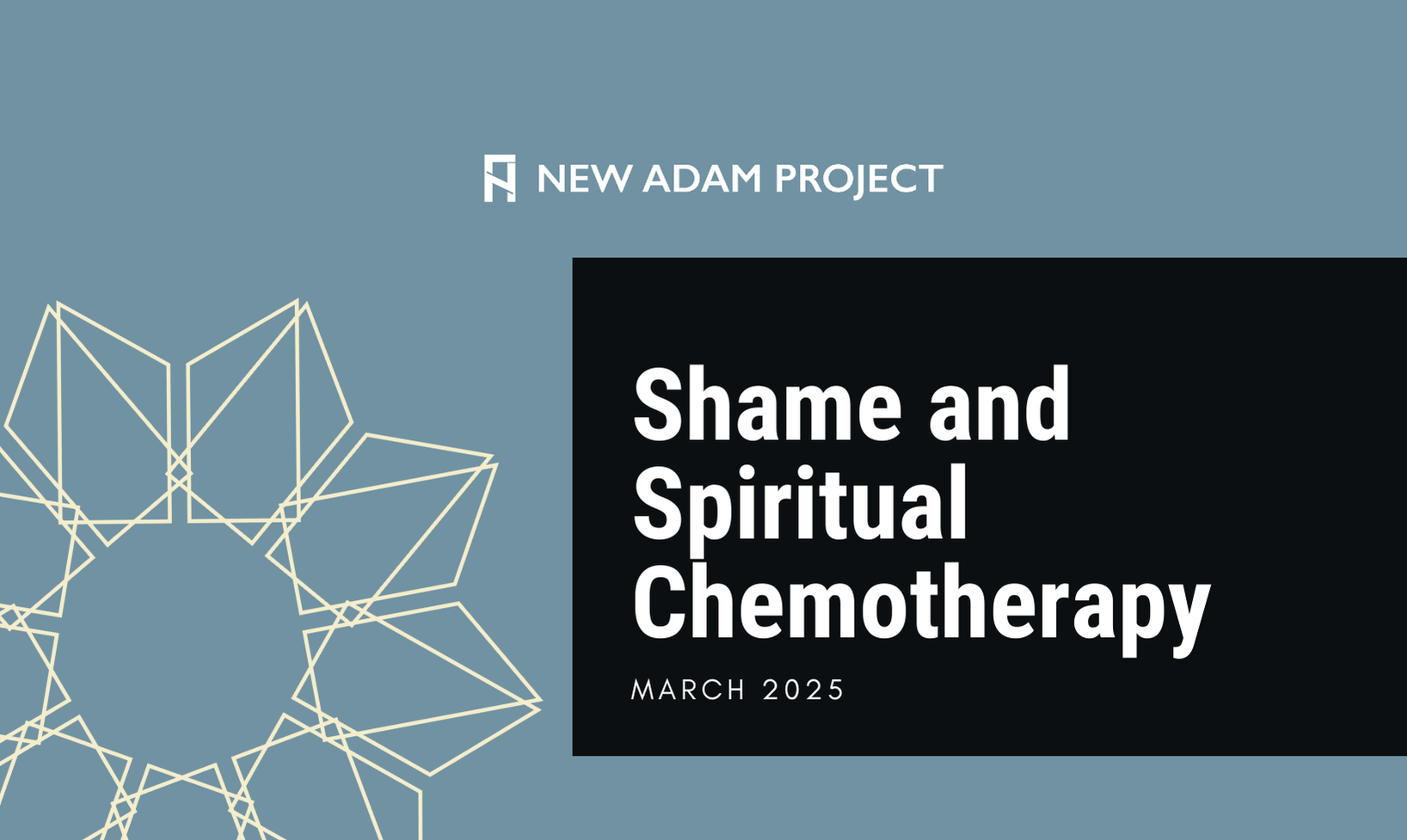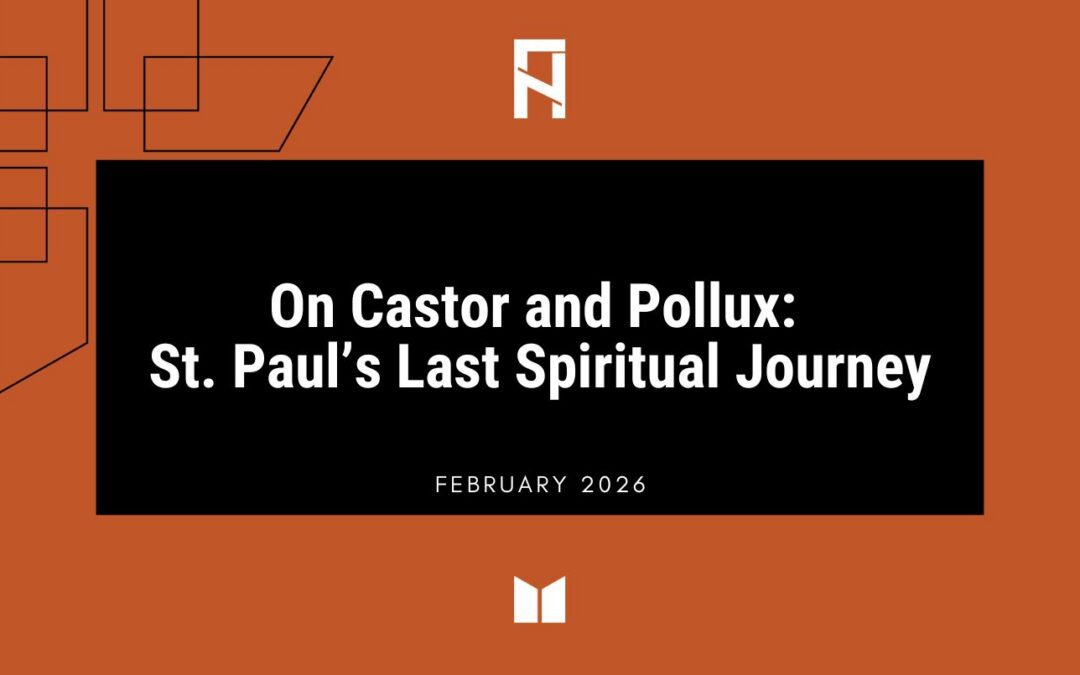Maybe you haven’t had the delightful experience of waking in a heart-thumping panic, certain that you had just found yourself in a public space wearing little to no clothing. If you have, then you know I’m not being sarcastic when I call this a delightful experience.
That feeling of realizing it was all a dream is nothing short of sweet relief. That first moment following such a dream, equipped with its characteristic surge of adrenaline and urge of fight-or-flight, I imagine to be something like the experience of Adam and Eve as they frantically cover themselves, choosing “flight” as they struggle to elude the all-seeing One. But these two experiences are only similar for a moment, for tragically, the shame they felt couldn’t be further from a dream.
Shame is a complex character. When she visits a man, she disregards outward details—age and skin color and socio-economic status. And when she begins her work, she overlooks inward distinctives—values and political stances and worldview.
Jeremy Schurke, Director of Mirror Labs, calls her a “great equalizer” among believers and unbelievers. Most despise her but cannot explain why they continue to pay homage. Is she wicked? Is she good? I’d like to reframe the conversation surrounding shame by proposing that she is like chemotherapy—a vile treatment that saves countless lives. Granted, there are no perfect analogies, but I think I’ve found one for shame that’s pretty darn close. Let me explain.
Halting the Spread
To frustrate the spread of cancer wherever it persists, chemo halts the growth of fast-growing cells indiscriminately. We call it good because it works to cut off a disordered and deadly operation, but we know it ignores the proper operation of the body’s fast-growing cells at the same time. Some call it a necessary evil.
I rarely hear shame described with any positivity, but I believe she also plays a vital role in saving lives, a role not so unlike chemotherapy.
Given the widespread familiarity with the corrosiveness of shame—those feelings of unworthiness, inability to receive love, anger, anxiety, etc.—the analogy of shame as a kind of spiritual chemotherapy might strike you as odd. What advantage could the presence of shame possibly have?
I suspect that the increasingly common (and sometimes even clinical) characterizations of shame might be leading us in the wrong direction. In various forms, I often hear something like this: while guilt is a sense that I am responsible for acting wrongly, but capable of restoration, shame is a sense that I am reprehensible in my very being and unworthy of restoration.
According to characterizations like this, shame is utterly destructive. My assessment is that we have rightly targeted shame, but not for the right reasons. Currently, we are hunting shame because we acknowledge her ruinous tendencies. And don’t hear me wrong—this is a good mission! But if we continue to address the shame epidemic because we believe she has no place at all, rather than because she has abused our hospitality, then we forfeit her assistance at the outset. Now, I’m sure you are wondering what I mean by the “assistance” of shame.
I realize that I have yet to explain myself.
As it appears in most biblical cases, shame (in various degrees) is a consequence of missing the mark, whether that mark is set in place by God or by society. In ideal circumstances, the latter would reflect the former, but as we are all aware, societies regularly establish standards according to their own values, disregarding God’s, and those who miss these marks unjustly experience shame for not measuring up.
In the ancient world, the poor and the outcast experienced societally-oriented shame, where achieving a place of honor was largely out of reach. When God’s standards are replaced by human standards in a society, shame goes rogue, entering homes where she does not belong. When I speak of the “assistance” of shame—please hear me! —I am not speaking of these disordered shame dynamics. On the other hand, when a man or a society keeps standards that align with God’s, we rightly call missing these marks sin.
Keeping in step with our original analogy, sin is like cancer. It infests, spreads, and corrupts. The shame that our first parents felt from disobeying God was designed to uncover guilt and to expose sin, thereby hindering its cancerous growth. Instead of confronting shame and taking her cues, the two covered and hid, offering shame a longer stay than she deserved.
Where covering and hiding promulgate shame’s hindrance of peace, hope, love, and joy, repentance and reconciliation send her away before she damages that which is good. It seems that Adam and Eve eventually found restoration, but their initial instincts have plagued their sons and daughters ever since.
When I suggest that shame can assist us, I mean that the wicked ought to be visited by shame. She deserves a long stay in the house marked by the love of evil. But for those of us who dwell in houses marked by the hatred of sin, her quick visits serve the purpose of reconciliation. In this manner, shame has a useful purpose, just as chemotherapy does. She has her sights on our sin and guilt, arousing us to take restorative action. But vigilance is crucial, for just as chemo touches the good along with the bad, shame quickly has her hands on freedom as well.
I realize this assessment has lacked practicality, being largely rhetorical and theoretical. Space prevents a deep dive into the “so what,” but I would be remiss if I didn’t address the question of how we might begin to reshape our relationship to shame in our own lives and in the lives of those around us.
First, we must be discerning in our evaluation. As I alluded to a moment ago, the feeling of shame should not be mistaken for the feeling of guilt. Guilt is an objective reality—a decision of the judge, so to speak—not a subjective feeling. You either are guilty or you are not. The subjective feeling we might mislabel “guilt” is actually the knocking of shame. Once again, shame is often completely unwarranted, if someone has failed to live up to unjust standards (when the wicked shame the righteous). In these cases, no repentance is needed.
What is needed are new and just standards. Much more can be said about the recent rise of societally-oriented shame dynamics in the Western world, but this would surpass the scope of this assessment.
Second, in those cases where the standards are just and a person feels shame due to honest guilt, then the faster they hit the road to repentance, the faster they can evict shame. I know this is quite simplistic. Many men don’t know how to seek repentance. Many seek it but still carry shame. The greater question of how to evict shame that refuses to leave is also beyond the present scope, but I hope that an accessible analogy and greater clarity about the issue can get us one step closer.






